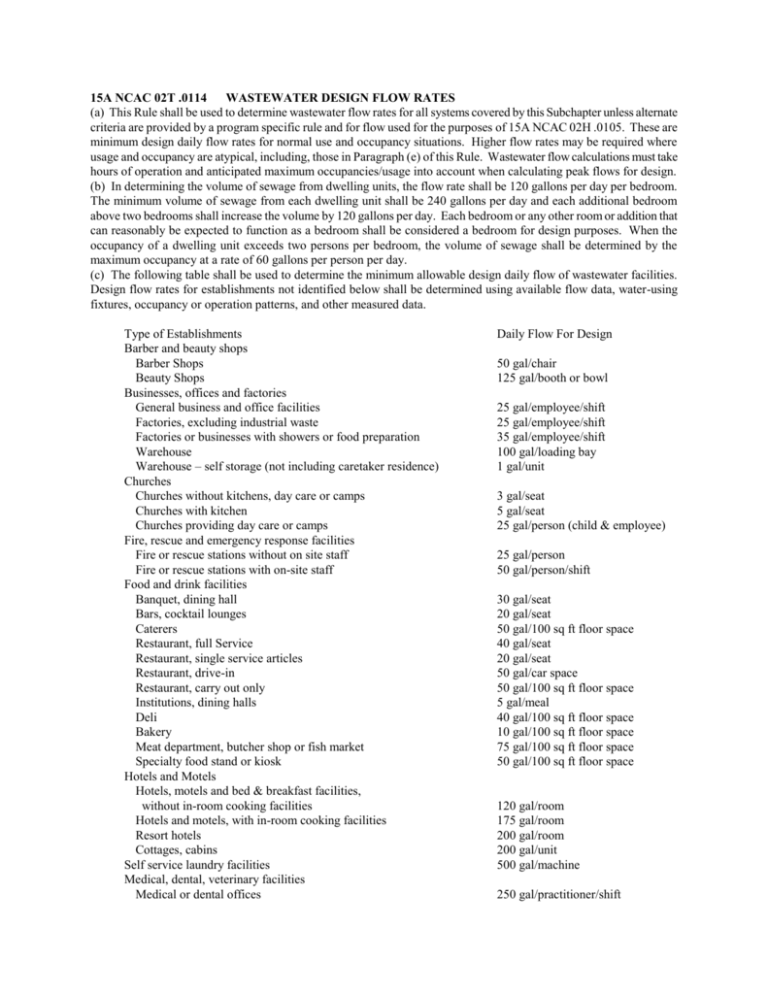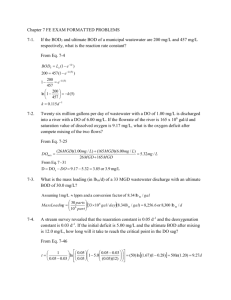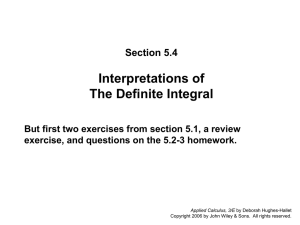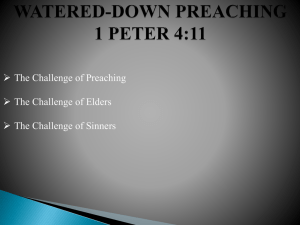15A NCAC 02T .0114 WASTEWATER DESIGN FLOW RATES (a
advertisement

15A NCAC 02T .0114 WASTEWATER DESIGN FLOW RATES (a) This Rule shall be used to determine wastewater flow rates for all systems covered by this Subchapter unless alternate criteria are provided by a program specific rule and for flow used for the purposes of 15A NCAC 02H .0105. These are minimum design daily flow rates for normal use and occupancy situations. Higher flow rates may be required where usage and occupancy are atypical, including, those in Paragraph (e) of this Rule. Wastewater flow calculations must take hours of operation and anticipated maximum occupancies/usage into account when calculating peak flows for design. (b) In determining the volume of sewage from dwelling units, the flow rate shall be 120 gallons per day per bedroom. The minimum volume of sewage from each dwelling unit shall be 240 gallons per day and each additional bedroom above two bedrooms shall increase the volume by 120 gallons per day. Each bedroom or any other room or addition that can reasonably be expected to function as a bedroom shall be considered a bedroom for design purposes. When the occupancy of a dwelling unit exceeds two persons per bedroom, the volume of sewage shall be determined by the maximum occupancy at a rate of 60 gallons per person per day. (c) The following table shall be used to determine the minimum allowable design daily flow of wastewater facilities. Design flow rates for establishments not identified below shall be determined using available flow data, water-using fixtures, occupancy or operation patterns, and other measured data. Type of Establishments Barber and beauty shops Barber Shops Beauty Shops Businesses, offices and factories General business and office facilities Factories, excluding industrial waste Factories or businesses with showers or food preparation Warehouse Warehouse – self storage (not including caretaker residence) Churches Churches without kitchens, day care or camps Churches with kitchen Churches providing day care or camps Fire, rescue and emergency response facilities Fire or rescue stations without on site staff Fire or rescue stations with on-site staff Food and drink facilities Banquet, dining hall Bars, cocktail lounges Caterers Restaurant, full Service Restaurant, single service articles Restaurant, drive-in Restaurant, carry out only Institutions, dining halls Deli Bakery Meat department, butcher shop or fish market Specialty food stand or kiosk Hotels and Motels Hotels, motels and bed & breakfast facilities, without in-room cooking facilities Hotels and motels, with in-room cooking facilities Resort hotels Cottages, cabins Self service laundry facilities Medical, dental, veterinary facilities Medical or dental offices Daily Flow For Design 50 gal/chair 125 gal/booth or bowl 25 gal/employee/shift 25 gal/employee/shift 35 gal/employee/shift 100 gal/loading bay 1 gal/unit 3 gal/seat 5 gal/seat 25 gal/person (child & employee) 25 gal/person 50 gal/person/shift 30 gal/seat 20 gal/seat 50 gal/100 sq ft floor space 40 gal/seat 20 gal/seat 50 gal/car space 50 gal/100 sq ft floor space 5 gal/meal 40 gal/100 sq ft floor space 10 gal/100 sq ft floor space 75 gal/100 sq ft floor space 50 gal/100 sq ft floor space 120 gal/room 175 gal/room 200 gal/room 200 gal/unit 500 gal/machine 250 gal/practitioner/shift Veterinary offices (not including boarding) 250 gal/practitioner/shift Veterinary hospitals, kennels, animal boarding facilities 20 gal/pen, cage, kennel or stall Hospitals, medical 300 gal/bed Hospitals, mental 150 gal/bed Convalescent, nursing, rest homes without laundry facilities 60 gal/bed Convalescent, nursing, rest homes with laundry facilities 120 gal/bed Residential care facilities 60 gal/person Parks, recreation, camp grounds, R-V parks and other outdoor activity facilities Campgrounds with comfort station, without water or sewer hookups 75 gal/campsite Campgrounds with water and sewer hookups 100 gal/campsite Campground dump station facility 50 gal/space Construction, hunting or work camps with flush toilets 60 gal/person Construction, hunting or work camps with chemical or portable toilets 40 gal/person Parks with restroom facilities 250 gal/plumbing fixture Summer camps without food preparation or laundry facilities 30 gal/person Summer camps with food preparation and laundry facilities 60 gal/person Swimming pools, bathhouses and spas 10 gal/person Public access restrooms 325 gal/plumbing fixture Schools, preschools and day care Day care and preschool facilities 25 gal/person (child & employee) Schools with cafeteria, gym and showers 15 gal/student Schools with cafeteria 12 gal/student Schools without cafeteria, gym or showers 10 gal/student Boarding schools 60 gal/person (student & employee) Service stations, car wash facilities Service stations, gas stations 250 gal/plumbing fixture Car wash facilities (if recycling water see Rule .0235) 1200 gal/bay Sports centers Bowling center 50 gal/lane Fitness, exercise, karate or dance center 50 gal/100 sq ft Tennis, racquet ball 50 gal/court Gymnasium 50 gal/100 sq ft Golf course with only minimal food service 250 gal/plumbing fixture Country clubs 60 gal/member or patron Mini golf, putt-putt 250 gal/plumbing fixture Go-kart, motocross 250 gal/plumbing fixture Batting cages, driving ranges 250 gal/plumbing fixture Marinas without bathhouse 10 gal/slip Marinas with bathhouse 30 gal/slip Video game arcades, pool halls 250 gal/plumbing fixture Stadiums, auditoriums, theaters, community centers 5 gal/seat Stores, shopping centers, malls and flea markets Auto, boat, recreational vehicle dealerships/showrooms with restrooms 125 gal/plumbing fixture Convenience stores, with food preparation 60 gal/100 sq ft Convenience stores, without food preparation 250 gal/plumbing fixture Flea markets 30 gal/stall Shopping centers and malls with food service 130 gal/1000 sq ft Stores and shopping centers without food service 100 gal/1000 sq ft Transportation terminals – air, bus, train, ferry, port and dock 5 gal/passenger (d) Design daily flow rates for proposed non-residential developments where the types of use and occupancy are not known shall be designed for a minimum of 880 gallons per acre or the applicant shall specify an anticipated flow based upon anticipated or potential uses. (e) Conditions applicable to the use of the above design daily flow rates: (1) For restaurants, convenience stores, service stations and public access restroom facilities, higher design daily flow rates shall be required based on higher expected usage where use is increased because of its proximity to highways, malls, beaches, or other similar high use areas. (2) Residential property on barrier islands and similar communities located south or east of the Atlantic Intracoastal Waterway used as vacation rental as defined in G.S. 42A-4 shall use 120 gallons per day per habitable room. Habitable room shall mean a room or enclosed floor space used or intended to be used for living or sleeping, excluding kitchens and dining areas, bathrooms, shower rooms, water closet compartments, laundries, pantries, foyers, connecting corridors, closets, and storage spaces. (f) An adjusted daily sewage flow design rate shall be granted for permitted but not yet tributary connections and future connections tributary to the system upon showing that a sewage system is adequate to meet actual daily wastewater flows from a facility included in Paragraph (b) or (c) of this Rule without causing flow violations at the receiving wastewater treatment plant or capacity related sanitary sewer overflows within the collection system as follows: (1) Documented, representative data from that facility or a comparable facility shall be submitted by an authorized signing official in accordance with Rule .0106 of this Section to the Division as follows for all flow reduction request: (A) Dates of flow meter calibrations during the time frame evaluated and indication if any adjustments were necessary. (B) A breakdown of the type of connections (e.g. two bedroom units, three bedroom units) and number of customers for each month of submitted data as applicable. Identification of any non-residential connections including subdivision clubhouses/pools, restaurants, schools, churches and businesses. For each non-residential connection, information as identified in Paragraph (c) of this Rule (e.g. 200 seat church, 40 seat restaurant, 35 person pool bathhouse). (C) Owner of the collection system. (D) Age of the collection system. (E) Analysis of inflow and infiltration within the collection system or receiving treatment plant, as applicable. (F) Where a dedicated wastewater treatment plant serves the specific area and is representative of the residential wastewater usage, at least the 12 most recent consecutive monthly average wastewater flow readings and the daily total wastewater flow readings for the highest average wastewater flow month per customers as reported to the Division. (G) Where daily data from a wastewater treatment plant cannot be utilized or is not representative of the project area: at least 12 months worth of monthly average wastewater flows from the receiving treatment plant shall be evaluated to determine the peak sewage month. Daily wastewater flows shall then be taken from a flow meter installed at the most downstream point of the collection area for the peak month selected that is representative of the project area. Justification for the selected placement of the flow meter shall also be provided. (H) An estimated minimum design daily sewage flow rate shall be taken by calculating the numerical average of the top three daily readings for the highest average flow month. The calculations shall also account for seasonal variations, excessive inflow and infiltration, age and suspected meter reading/recording errors. (2) The Division shall evaluate all data submitted but shall also consider other factors in granting, with or without adjustment, or denying a flow reduction request including: applicable weather conditions during the data period (i.e. rainy or drought), other historical monitoring data for the particular facility or other similar facilities available to the Division, the general accuracy of monitoring reports and flow meter readings, and facility usage (i.e., resort area). (3) Flow increases shall be required if the calculations in Subparagraph (f)(1) of this Rule yield design flows higher than that specified in Paragraphs (b) or (c) of this Rule. (4) The applicant/owner shall retain the letter of any approved adjusted daily design flow rate for the life of the facility and shall transfer such letter to any new system owner. History Note: Authority G.S. 143-215.1; 143-215.3(a)(1); Eff. September 1, 2006.








